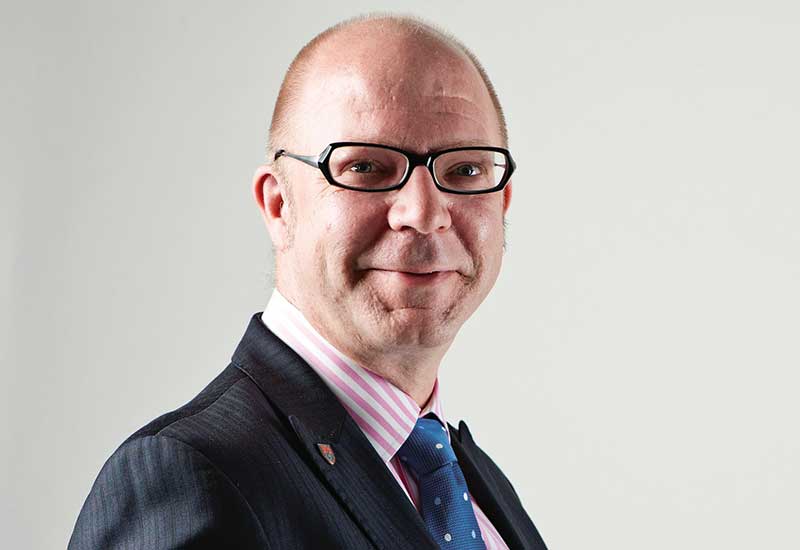How much do you know about ovens? I have to admit that other than that you open the door on the front, light the gas or switch on the electricity, put the food in, close the door, adjust the dials, and wait, I really don’t know too much about ovens.
Oddly enough, though, I found myself discussing ovens with a kitchen supplier at a recent hospitality black-tie do. Turns out that today’s ovens are technological marvels that can do more magic with a piece of meat than Harry Potter with his wand. Also turns out most people don’t really know how to use them to their full potential – or at least that’s what I gathered from talking to the kitchen chap. He estimated that, in many places, his ovens are used to less than half their true potential, which results in energy, time, and food wastage, and end products that aren’t perhaps as good as they could be.
It’s not just ovens, of course, but also printers, TVs, and just about any piece of software we use in hotels. I do enjoy technology and I’m somewhat of a gadget freak, but even I admit that a) I usually don’t read the manual, and b) I often don’t use gadgets to their full potential. On a personal level such behaviour probably causes mild annoyances at best, but on a professional level, the matter’s slightly different and you quickly stand to lose a lot of time and money.
This is where PEBCAK comes into play. Don’t know what PEBCAK is? Ask your IT manager, they will know. PEBCAK stands for ‘problem exists between chair and keyboard’. In other words, the inability of people to handle a piece of technology or software correctly. There’s also PEBMAC (problem exists between monitor and chair) and the very kitchen-compatible PICNIC (problem in chair, not in computer).

| Advertisement |
Long story short, it’s us who get in the way of technology, which then causes untold misery. There’s a lot of talk about new technology at industry events, but let’s face it, very few of us make sure that we use the existing technology in our hotels to the maximum. Go back to the oven chap for a second. He told me that his ovens are made to be powered up quickly and can be set to cook just about anything at the optimal temperature and with the least amount of energy, provided you press the right buttons. He also told me that in far too many kitchens he walks in, his ovens sit there fired up to 180 degrees almost 24/7. Who’s responsible for the resulting energy wastage? Certainly not the oven or the oven manufacturer.
I don’t know how many times I have had hoteliers come to me and say things like “This new system really is a bit rubbish. It doesn’t even and it cost us a bundle!” Provided I know the system a hotelier is talking about, I usually go “Wait, it does that, you just need to do and that’s it.”
Sometimes, if I don’t know the system a hotelier is talking about, but I feel that it’s my lucky day, I press a random button and, hey presto, coffee! Also, I look like a wizard then. On the other hand, I once crashed a well-known PMS manufacturer’s entire exhibition display that way. You’ve never seen a wizard run that fast!
Seriously, though, whether it’s ovens, property management systems, revenue management software, or the latest in-room entertainment gadget, we would all be better off if we actually spend more time reading the manuals and ensuring that we, or the team-members we entrust with the technology, understand what the technology can or cannot do.
You wouldn’t buy a convertible and then not bother to find the button that opens the roof after all, so why put up with this kind of behaviour in your hotel?
It’s no good to put the blame on the suppliers, at least most of the time, or on consultants. We try our best, but like guests on check-in, who are eager to settle into their rooms, hotel folks often don’t listen to everything we say. In case of the guests that leads to the well-known calls to reception asking things like “What time does the five o’clock shuttle leave?”, while in the case of hoteliers, it leads to money and time wasted and undue blame being put on systems and system providers.
A regular technology audit, carried out at least once a year, is a good idea and will quickly establish any knowledge gaps, system refurbishment or replacement needs, or simply throw up a number of questions to ask the local system vendor or supplier.
Trade fairs are also great ways to find out what systems and technology can really do, without looking like a total fool. Just ask the sales person to demonstrate whatever it is that you also use in your hotel and pretend to be interested in purchasing it, then listen carefully.
Courtesy disclaimer: My wife has asked me to point out that the issues outlined in this column wouldn’t exist if all hotels were run by women, because women have no problems reading user manuals or asking for directions. She also pointed out that, disagreeing with this point of view, would be diplomatically unwise for me.
Whatever you do: RTFM! (That’s “Read the [pause] manual!”, in case you didn’t know already.)
About the Author: Martin Kubler is the founder of Iconsulthotels and the CEO of sps:affinity. Iconsulthotels is now sps:hotels — a leading hotel management consultancy that provides its clients forward-looking business strategies, keeping them ahead of the market. Email: hello@spsaffinity.com.









 Search our database of more than 2,700 industry companies
Search our database of more than 2,700 industry companies









